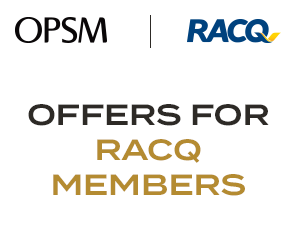Salary sacrificing to superannuation
Is boosting your super through salary sacrifice right for you?

Salary sacrificing works by redirecting some of your gross salary directly into superannuation before tax, this is often done through your company’s payroll team.
What are the benefits of salary sacrificing to superannuation?
If your income is over $37,000, the main benefit could be a tax benefit.
These extra super contributions are taxed at 15 percent, lower than the marginal tax rate payable.
This means your sacrifice is not counted towards your assessable income or fringe benefit, for tax purposes.
It can seem like an easy way to complement your compulsory superannuation guarantee and boost your overall superannuation balance, which could mean you have a higher balance upon retirement.
Should I consider salary sacrificing?
If you think salary sacrificing could be an option for you, it’s important to look at your cashflow first. Do you have enough ‘breathing room’ in your current budget to allow you to push additional funds into your superannuation account?
Make sure you’ve reviewed your future financial goals as you may not be able to access an early release of these additional funds if you need it. There are many conditions for early release of super, the most common including reaching preservation age and retiring, ceasing employment after the age of 60, reaching age 65, or severe hardship.
How much can I salary sacrifice?
This can change each year so it’s important to check with your superannuation fund or other trusted advisor and make amendments accordingly.
Be mindful that the total amount of contributions includes what your employer pays on your behalf. Going over this limit could mean additional charges and/or a higher tax rate.
What is the difference between pre-tax (concessional) and after-tax (non-concessional contributions)?
Concessional contributions are where an individual has not paid their marginal tax rate on their contributions whereas, non-concessional contributions are where people contribute their own after-tax money into their superannuation.
Each have their own limits and penalties for contributing more than these limits, so refer to the ATO website for more information.
How does the First Home Super Save (FHSS) scheme work?
Individuals who are saving for their first home are empowered to do so through their additional superannuation contributions.
Through this scheme, voluntary concessional and non-concessional contributions to their super are invested together with the overall super balance.
This could lead to a first home buyer increasing their deposit through investment, rather than saving money into a traditional savings account. The Australian Taxation Office (ATO) website provides more information about this scheme.
I’ve decided I’d like to salary sacrifice. What do I do now?
If you’ve decided this is the right decision for you, talk to your employer’s HR or payroll team to discuss what information they need from you to proceed.
The information in this article has been prepared for general information purposes only and not as specific advice to any particular person. Any advice contained in the document is general advice and does not take into account any person's particular investment objectives, financial situation or needs. Before acting on anything based on this advice you should consider its appropriateness to you, having regard to your objectives, financial situations and needs.
Related topics
Things to note
The information in this article has been prepared for general information purposes only and is not intended as legal advice or specific advice to any particular person. Any advice contained in the document is general advice, not intended as legal advice or professional advice and does not take into account any person’s particular circumstances. Before acting on anything based on this advice you should consider its appropriateness to you, having regard to your objectives and needs.
Insurance Products (excluding Travel Insurance) are issued by RACQ Insurance Limited ABN 50 009 704 152 (RACQI) and arranged by RACQ Distribution Services Pty Ltd (RDS) ABN 35 116 361 650, AFSL 567130 and RDS' authorised representatives (including RACQ Operations Pty Ltd ABN 80 009 663 414, AR No. 234978 (RACQO)). Conditions, limits and exclusions apply.
Any advice provided by RDS and RACQO is general advice only and does not take into account your personal objectives, financial situation or needs and you will need to consider whether the advice is appropriate for you. Read the Product Disclosure Statement (PDS) before making a purchase decision on the product. You can also access our Target Market Determinations on this website.
RDS receives a commission from RACQI for the policies it arranges. RACQO receives fees paid for services it provides to RDS. Further details about remuneration are available on request prior to purchasing.
Banking and loan products issued by Members Banking Group Limited ABN 83 087 651 054 AFSL/Australian credit licence 241195 trading as RACQ Bank. Terms, conditions, fees, charges and lending policies apply. This is general advice only and may not be right for you. This information does not take your personal objectives, circumstances or needs into account. Read the disclosure documents for your selected product or service, including the Financial Services Guide and the Terms and Conditions, and consider if appropriate for you before deciding.
Except for RACQ Bank, any RACQ entity referred to on this page is not an authorised deposit-taking institution for the purposes of the Banking Act 1959 (Cth). That entity’s obligations do not represent deposits or other liabilities of RACQ Bank. RACQ Bank does not guarantee or otherwise provide assurance in respect of the obligations of that entity, unless noted otherwise.
RACQ Bank subscribes to the Customer Owned Banking Code of Practice which establishes higher standards than the law requires. The Code reflects modern consumer expectations and developments in approaches to issues such as consumer vulnerability, guarantors, and supporting customers through financial hardship. Please read our Customer Owned Banking Code of Practice page for more information.
RACQ Operations Pty Ltd (ABN 80 009 663 414 AR 000234978) and Members Travel Group Pty Ltd (ABN 45 144 538 803 AR 000432492) are acting as an Authorised Representative of the issuer of the insurance, Tokio Marine & Nichido Fire Insurance Co., Ltd. (ABN 80 000 438 291 AFSL 246 548). Any advice set out above is general in nature only, and does not take into account your objectives, financial situation or needs. Before purchasing any travel products, please consider the RACQ Travel Insurance Product Disclosure Statement (PDS) and the Target Market Determinations (TMDs) that apply to these products. Whilst the PDS outlines the Terms and Conditions of these products, the TMDs outline the intended class of customers that comprise the target market for these travel products. This will allow you to consider which products best suit your objectives, financial situation and needs and consider the products appropriateness to your personal circumstances. TMDs also outline matters involving the distribution and the review of these products. The PDS, Supplementary PDS and TMDs for each travel product can be found here.

